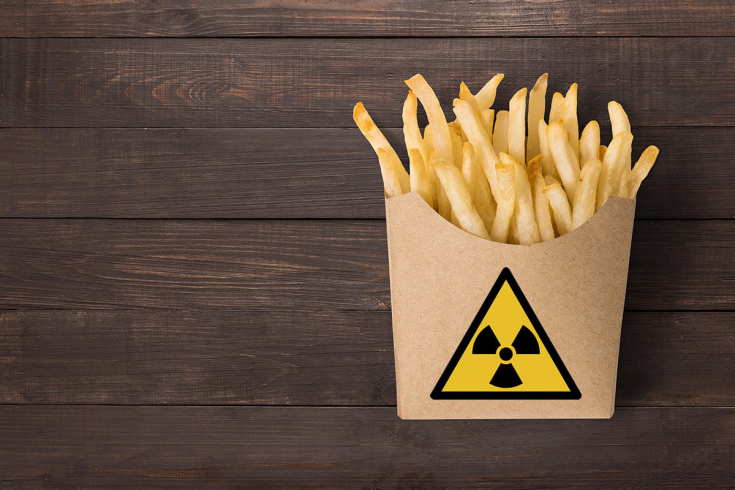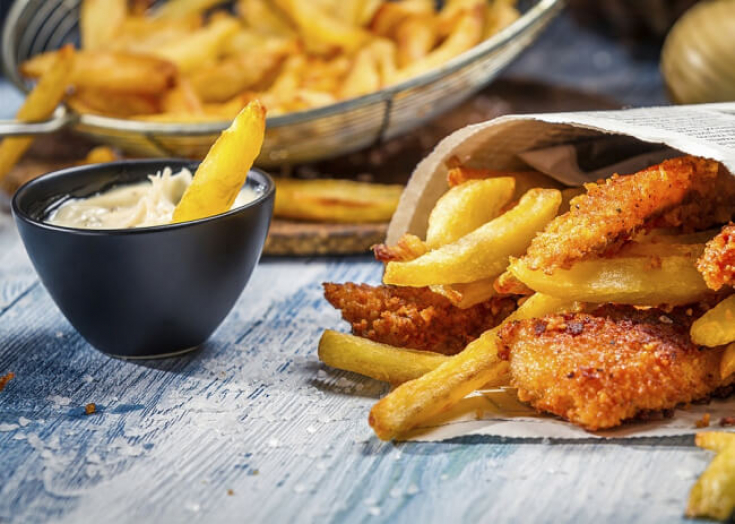Trans fats have a bad reputation. They are called "killer fats" and banned in many Western countries. Scientists have no doubt that they cause great harm to human health. However, the use of trans fats in manufacturing— it's cheap and practical. So the products are stored longer and have an improved aroma and taste. Therefore, unscrupulous manufacturers are in no hurry to refuse them, endangering the health of buyers.
The editors of estet-portal.com will tell you about what harm trans fats do to the body and what products contain these "deadly" parasites.
- What harm do trans fats cause to the body
- How to identify trans fats in foods
- How to protect yourself from the harmful effects of trans fats
What harm do trans fats cause to the body
In 1902, chemist Wilhelm Normann invented the process of hydrogenation — method for converting liquid vegetable oils into solid fats. The new product was of particular importance for industry. Hydrogenated oils were cheap and readily available, unlike butter and lard. Thus began the popularization of margarine, which was announced as a healthier alternative to butter.

Read also: The whole truth about fat-free foods: diet food or harm to health
The situation changed after it became known that trans fats, which are formed in large quantities during hydrogenation, are dangerous to health. Scientific studies in the 80s and 90s proved that trans fats are much more dangerous than the saturated fats found in animal products. It turned out that humans do not have enzymes capable of processing trans fats. They are hard to digest by the body, which ultimately leads to heart problems and diabetes. Thus, margarine is much more harmful than butter.
The harm of trans fats:
-
Trans fats increase the content of "bad" cholesterol and reduce the level of "good" cholesterol, which leads to atherosclerosis.
-
Increase the risk of developing cardiovascular disease and diabetes.
-
Increase the risk of developing coronary heart disease.
-
Decrease the chances of surviving a heart attack.
-
Lead obesity.
-
children have an increased risk of developing allergies and rashes, and reduced mental abilities.
-
There is a risk of infertility in women.
Read also: Is milk — the whole truth about drink
Trans fats are not only artificial, but and natural. They are also found in lamb, goat meat, beef, milk, milk fat. They do not cause as much concern as artificial ones, because their numbers are small. And excessive artificial trans fats are found in many types of products.
How to identify the presence of trans fats in foods
WHO recommends consuming no more than 1% trans fat per day of the energy value of the total diet. And this is with taking into account the use of natural trans fats, which are found in meat and milk.
For example, if your diet is 2000 kcal, then you can consume no more than 2.5 g of trans fats per day. This is equal to half a teaspoon of melted margarine, or one margarine-based cookie.

Given the potential health hazards of trans fats, food standards have been developed for the content of trans fats in foods. First of all, it concerns oil and fat products:
-
The trans-fat spread must not exceed 8%.
-
In margarine, the limit — 20%.
In the United States and Europe, for other products, the norm of trans fats must not exceed 2% of the total amount of fat in the product. In Ukraine, Russia, Latin America, at the state level, the norms for the content of trans fats in fat-containing products are not regulated. Therefore, the manufacturer can use any amount of trans fats and not indicate it on package.
The only outlet for consumers — it is to carefully study the label and avoid products using partially hydrogenated vegetable oil”.
Read also: Olive oil — the secret of health, beauty and longevity

The big problem is that there are a lot of such products. The modern food industry uses cheap hydrogenated oils literally everywhere: from the creation of margarine to confectionery. The most dangerous, from the point of view of the content of trans fats, the following products are recognized:
-
Margarine, spread, refined vegetable oils.
-
All foods that are fried in vegetable oil and margarine.
-
Fast food, chips, mayonnaise.
-
Candies, cakes, pastries, cookies, chocolate and other confectionery.
-
Semi-finished products.
-
Frozen products.
Don't be afraid of foods containing palm oil. If it is in the product, then it does not contain trans fats. Palm oil is considered the lesser of evils and the main substitute for trans fats.
How to protect yourself from the harmful effects of trans fats
Excessive consumption of trans fats threatens serious health problems. In Denmark and Austria, the use of trans fats is completely prohibited; in other European countries there are significant restrictions on its use in the food industry.

We were less fortunate. The manufacturer may not at all indicate the presence of trans fats on the label. In this case, a conscious approach to the choice of products can help:
-
Avoid fast food and fried foods.
-
Stop margarine.
-
Limit your consumption of chocolate and confectionery.
-
Discard precooked foods fried in dough.
-
Prefer stewing foods over frying, especially deep-frying.
When buying any product, pay attention to the label and look for ingredients such as margarine, hydrogenated fats, partially hydrogenated fats. All this indicates the presence of trans fats.
Read also: Speeding up metabolism: 30 unusual ways
Watch us on YouTube:






Add a comment